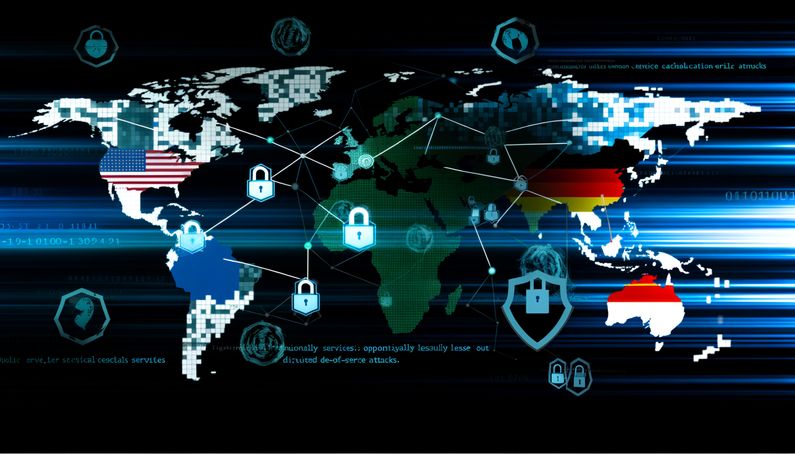
Operation PowerOFF: A Landmark in the Global Fight Against Cybercrime
Operation PowerOFF marks a pivotal moment in the fight against cybercrime, showcasing the power of international cooperation. This global initiative, spearheaded by Europol, involved law enforcement agencies from 15 countries, including the United States, Germany, and Australia, to dismantle DDoS-for-hire services. The operation led to the seizure of 27 platforms and the arrest of multiple administrators, highlighting the extensive reach and impact of these illegal services. The success of Operation PowerOFF underscores the necessity of a unified approach to combat the growing threat of cybercrime on a global scale (BleepingComputer).
Operation PowerOFF: The Global Crackdown on DDoS-for-Hire Services
International Collaboration and Coordination
Operation PowerOFF represents a significant international effort to dismantle DDoS-for-hire services, involving law enforcement agencies from 15 countries, including the United States, Germany, the Netherlands, Poland, and Australia. This global initiative, coordinated by Europol, underscores the importance of international collaboration in tackling cybercrime. The operation has led to the seizure of 27 platforms and the arrest of multiple administrators, highlighting the extensive reach and impact of these illegal services. The operation’s success is attributed to the coordinated efforts of various countries, which shared intelligence, conducted simultaneous raids, and provided technical and forensic support. This collaboration demonstrates the necessity of a unified approach to combat the growing threat of cybercrime on a global scale. (BleepingComputer)
Technological and Investigative Techniques
The takedown of DDoS-for-hire services required advanced technological and investigative techniques. Law enforcement agencies utilized crypto-tracing and forensic investigation methods to track financial transactions and identify the administrators behind these platforms. The Joint Cybercrime Action Team (J-CAT) provided analytical expertise, assisting in the identification and apprehension of suspects. Additionally, Dutch investigators employed innovative strategies by creating fake booter sites to deter potential customers and warn them of the legal consequences of using such services. This proactive approach not only disrupted existing operations but also served as a preventive measure against future cyberattacks. (Bitdefender)
Legal and Judicial Outcomes
The legal and judicial outcomes of Operation PowerOFF have been significant, with numerous arrests and prosecutions resulting from the operation. In Poland, four individuals were detained for their involvement in running DDoS-for-hire platforms, while three administrators were arrested in France and Germany. The operation also identified 300 users of these illegal services, some of whom faced legal action, while others received warnings. The judicial proceedings highlight the seriousness with which authorities are treating cybercrime, emphasizing the potential legal repercussions for those involved in such activities. This serves as a deterrent to others who may consider engaging in similar illegal operations. (Help Net Security)
Impact on Cybersecurity Landscape
The dismantling of DDoS-for-hire services has had a profound impact on the cybersecurity landscape. By removing these platforms, Operation PowerOFF has significantly reduced the availability of tools used to launch debilitating cyberattacks. This has led to a decrease in the number of DDoS attacks, providing relief to businesses, government agencies, and other organizations that were frequent targets. The operation has also raised awareness about the dangers and illegality of using DDoS-for-hire services, contributing to a broader understanding of cybersecurity threats and the importance of safeguarding digital infrastructure. This shift in the cybersecurity landscape is a testament to the effectiveness of coordinated international efforts in combating cybercrime. (CyberScoop)
Future Implications and Strategies
Looking ahead, Operation PowerOFF sets a precedent for future strategies in combating cybercrime. The operation’s success demonstrates the need for continued international collaboration and the development of innovative techniques to stay ahead of cybercriminals. It also highlights the importance of education and awareness campaigns to prevent individuals from engaging in illegal activities. Moving forward, law enforcement agencies must remain vigilant and adaptive, employing both reactive and proactive measures to address the evolving threat landscape. The lessons learned from Operation PowerOFF will inform future operations and contribute to the ongoing effort to create a safer digital environment. (BleepingComputer)
Final Thoughts
The dismantling of DDoS-for-hire services through Operation PowerOFF has significantly altered the cybersecurity landscape. By removing these platforms, the operation has reduced the availability of tools used to launch debilitating cyberattacks, providing relief to businesses and organizations worldwide. This initiative not only disrupted existing operations but also served as a preventive measure against future cyberattacks. The lessons learned from Operation PowerOFF will inform future strategies and contribute to the ongoing effort to create a safer digital environment (CyberScoop).
References
- BleepingComputer. (2024). Police takes down six DDoS-for-hire services, arrests admins. https://www.bleepingcomputer.com/news/security/police-takes-down-six-ddos-for-hire-services-arrests-admins/
- Bitdefender. (2024). Police from 15 countries shut down major DDoS-for-hire platforms. https://www.bitdefender.com/en-us/blog/hotforsecurity/police-from-15-countries-shut-down-major-ddos-for-hire-platforms
- Help Net Security. (2024). 27 DDoS platforms, booter services seized in Operation PowerOFF. https://www.helpnetsecurity.com/2024/12/12/27-ddos-platforms-booter-services-seized-operation-poweroff/
- CyberScoop. (2024). International crackdown disrupts DDoS-for-hire operations. https://cyberscoop.com/international-crackdown-disrupts-ddos-for-hire-operations/



